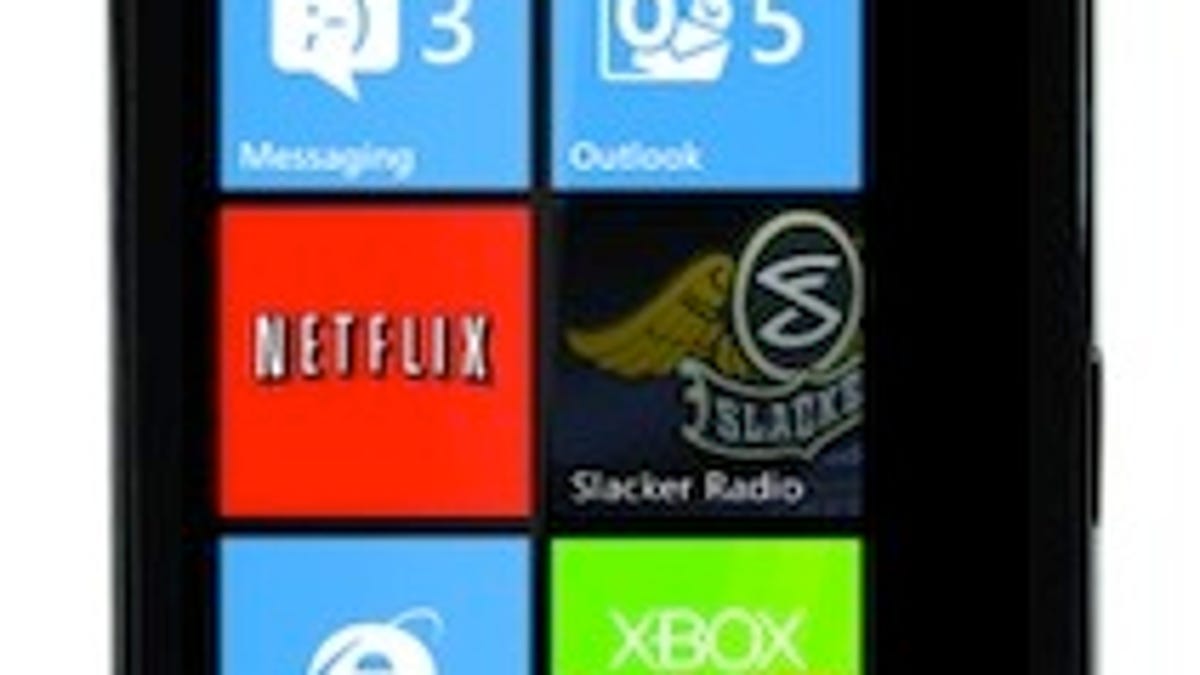Selling Windows Phone 7: What Microsoft could have done
Five ways Microsoft could have made Windows Phone 7 a bigger success right out of the gate.

When you paint it by numbers, Microsoft did most everything right to launch Windows Phone 7. They created a bold, fresh design, which they previewed to get press excited and involved. Then there was the big, teased kickoff event in New York presided over by CEO Steve Ballmer. Microsoft even shelled out the appropriate bundle for for clever, engaging ads, and for prominent TV placements (units appeared in U.S. TV shows "Castle," "Bones," and "Hawaii Five-O" to name three).
Yet Windows Phones aren't even coming close to turning the relentless Android tide. Microsoft kept mute on sales numbers since the smartphones' October 21 release in Europe and Asia, and the November 8 sales day here in the U.S. (Launch day was unimpressive here in San Francisco.)
For weeks, Microsoft has responded to CNET's requests with responses like, "it's too early to tell," and did little to rebuff rumors of poor performance. Redmond is now finally sharing that it sold over 1.5 million devices in the first six weeks--but that's to mobile operators and other retailers. It isn't clear how many units from this batch of handsets customers actually bought. (Neither AT&T nor T-Mobile would comment to CNET on sales numbers, but a T-Mobile representative said: "Our new Windows Phone 7 offering, the HTC HD7, is also among our customers' top smartphone choices.")
Here's our list of five things we think Microsoft could have done to capture more customers.
Greater OS investment
Microsoft's so-claimed strategy of playing the long game is fine--but they needed more oomph in the short game as well. In addition to overhauling the UI, Microsoft should have invested more in integrating services at launch. We're not just talking about copy/paste (it's coming in January.) We mean built-in universal voice search using Microsoft's TellMe technology, and deeper integration with social networks like Facebook, with the free Skydrive online storage, and with Microsoft's MyPhone online backup and handset recovery portal.More transparency with what's next
We loved Microsoft's Windows Phone ads, but they did little to differentiate or show off the OS' strengths. Especially during holiday sales, Microsoft should have unleashed an advertising blitz on TV, Hulu, billboards, magazine, and Web sites to preview future improvements like copy and paste, plus original offerings like the Zune music service (working from both a PC and a Mac), and gaming with Xbox Live.
Launch with CDMA
For technical reasons, Microsoft's first Windows Phones are GSM-enabled, but not CDMA-ready. Launching phones on Verizon, the nation's largest subscriber base, could have helped gets phones in more hands, which is as good for word-of-mouth marketing as it is for the bottom line. As Forrester analyst Charles Golvin put it, "By and large, [consumers] are more interested in being able to get a range of options from their current provider. Limiting distribution to just AT&T and T-Mobile in the U.S. was a shortcoming." We're expecting Windows Phones to arrive at Verizon and Sprint in early 2011, but many have pointed to the delay as a proof of weakness.High-profile app contest
Microsoft has certainly sponsored app contests for developers, but nothing akin to the high-stakes Android Developer Challenge, which awarded $275,000 to 10 teams, $100,000 to another ten, and $25,000 to all 50 finalists the year that Android launched. One of Microsoft's biggest challenges is restocking the app store with fresh apps--they aren't backward-compatible with any previous Windows phone operating system. There are now 18,000 developers programming Windows Phone apps, according Achim Berg, Microsoft's vice president of business and marketing for Windows Phones. In the meantime, iOS and Android have hundreds of thousands of apps already in their app stores.Target Windows Mobile, Kin customers
There are many reasons why Microsoft would want to disassociate from the failed Kin launch earlier in 2010 and the Windows Mobile 6.5 operating system of the company's old mobile guard. But there are many more reasons why Microsoft would want to retain former customers who used their phones, particularly if Microsoft knows it faces an uphill battle to win hearts and minds against Apple iOS and the ever-gaining Google Android. Microsoft could have worked with partner carriers AT&T and T-Mobile to offer exclusives sales and steep discounts to anyone who traded up a Kin or Windows Mobile phone.More to come
Microsoft has done a decent job with promotions so far. There have been handset discounts at Costco and Amazon, and buy-one, get-one deals with T-Mobile. Just today we saw an offer of a free Xbox game in exchange for purchasing a Windows Phone. We're certain to see more sales, app announcements, and major platform developments in the early part of 2011, so check back for more, especially during CES, where CEO Ballmer is delivering a keynote.In the meantime, tell us where you think Microsoft went right or wrong.

